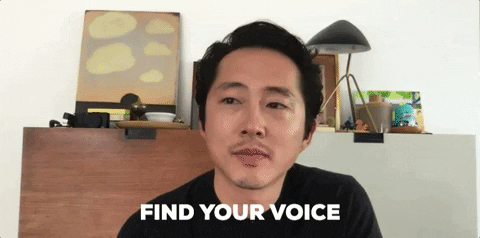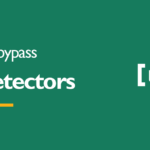The journey to becoming a professional at anything takes time.
Weeks? Months? Years?
The answer differs depending on whom you ask. But the truth is that your journey as a professional writer, athlete — or anything — starts with understanding the basics.
Thanks to academia, we’ve already acquired writing fundamentals from essays and term papers. Some of us have also kept diaries and written short stories in our free time.
But how can you tap into this knowledge to become a successful writer? How can you convert this pastime into a profession?
Hop on and explore how to become a professional writer within a short time.
1 — Start reading

You’ve heard this one many times, but allow me to explain before you slam the door.
As an aspiring writer, you need to extend your vocabulary and explore others’ perspectives — that’s why you need to read.
Don’t limit your reading to heavy books with complicated concepts; add some simple books to the mix.
Find a writer with a relatable style and study their work. And instead of reading just for fun, spend time analyzing how they use words to express ideas.
You should also read books about writing. Some good reads include:
- On Writing: A Memoir of the Craft — Stephen King
- On Writing Well — William Zinsser
- The Sense of Style — Steven Pinker
2 — Pick a niche
By the time you’ve dissected the works of your favorite authors, you will notice a path taking shape.
At this point, most green writers believe they can take on any writing challenge — attack any topic with ferocity.
Calm down.
Narrowing down your area of focus to a specific niche helps you develop faster as a writer.
So, choose a niche that resonates with you, and start honing your craft from there.
For example, you can focus on writing about coding if you enjoy coding. And once you master writing in that niche, you can transfer the skill to other industries.
3 — Take writing courses
Most online courses are elaborate scams crafted to deliver the same regurgitated babble to willing consumers.
However, some online platforms deliver top-notch content on writing. You just need to find the course that fits your niche and your budget.
Besides, writers without any experience need certification to get jobs, and some of these courses can substitute (or supplement) college degrees.
If you are wondering what courses to take to become a writer, here are a few handy picks:
- MasterClass hosts expert writing courses from Dan Brown, Shonda Rhimes, and other household names.
- Top blogs like SmartBlogger and Hubspot offer marketing-related writing courses.
- You can find professional writing courses on Udemy and Coursera.
Whichever route you choose, always review the course details before paying for it.
4 — Create a writing schedule

You’ve nailed down the courses, and you now have a certification. Now it’s time to start sharing your writing skills with the world.
But not so fast; you need to put in the reps to polish your writing as a marketable commodity. After all, magicians don’t take the stage without multiple rehearsals.
To this end, you must create a content creation workflow or timetable. With a content workflow, you can arrange your writing schedule, just like your gym routine.
By following the routine outlined in your content workflow, you can experiment with new writing techniques and sharpen your storytelling skills.
Besides, a properly curated writing workflow can help beginners to generate enough content for their portfolio.
5 — Publish your work
Now that you have enough work on your drive, start working on how to publish them.
As a general rule, you should always publicize your best work.
Emmy-winning designer Chris Do always says that you are as good as the worst piece in your portfolio.
So, devote time to rewriting and editing the final piece that ends up on your page or blog.
Choosing the right platform for your work is another vital aspect of publishing your writing.
If you have the technical skills, you can create a blog on WordPress or Wix. Otherwise, you can post your work on sites like Medium, Blogger, or LinkedIn.
You just need an online portal on which people — and potential recruiters — can view your work.
6 — Seek feedback
Receiving and processing feedback is always a struggle for writers.
Imagine giving a piece of yourself to someone else to judge.
Sounds scary, right?
But without feedback, you will struggle to develop your writing skills to a professional level.
Here are the reasons why feedback is important in writing:
- Explores the readers’ perspective
- Allows you to receive expert insights
- Helps you eliminate bad habits
- Enables you to explore other ideas
- Prepares you for work with clients
That said, you shouldn’t take feedback from everybody.
Your friends will play it safe and tell you what a good writer you are. On the other hand, bitter online couch-expert editors can crush your confidence.
But if you find that blunt friend or supportive mentor to give you constant feedback, your work will sparkle like a gem.
7 — Develop your unique voice

Nowadays, writers are obsessed with developing a voice.
Don’t get me wrong, sounding unique is a valuable asset in the saturated market. But people place too much emphasis on it nowadays.
Think about it; if 100 people learn from Rowling, most of them will sound like Rowling.
So, before thinking about your unique style or tone of voice, focus on your craft. Pick examples from your favorite writers and blend them into your own style salad.
Jon Morrow’s humor + Seth Godin’s brevity + Hemingway’s bluntness = Your new style.
And after months of mirroring their style, your voice will start to develop.
It is a gradual, painstaking process; don’t force it.
8 — Upgrade your technical knowledge
As you develop your writing skills, you should boost your technical know-how simultaneously.
Why?
For starters, recruiters hire writers who understand technical terms like SEO and SEM. So, you should know how to use tools like SEMRush and Ahrefs to find keywords and analyze competitors.
Not only that, thousands of writing tools are available on the internet today. So why limit yourself to manual writing?
Creative writers can use Scrivener to knit stories together, while fiction writers can use Evernote and Notion to take notes on the fly.
Above all, AI-powered tools like Grammarly help you polish your writing and delivery, and the Hemingway App improves the readability of your written piece.
In essence, these tools help you manage your time and deliver premium quality work consistently.
9 — Join a professional writer community
Writers need to surround themselves with like-minded people through networking. You can’t learn how to become a writer online in isolation.
Ugh! Here we go again with meeting people…
If you don’t want to endure the stress of physical interactions, then online forums and social media groups are there for you.
Still not convinced?
Here are the benefits of joining an online writing group:
- The members inspire each other
- You share your achievements with colleagues
- Groups help you break the monotony of isolation
- Members can critique your work
- You can seek assistance when struggling to finish a piece
- Group members keep one another accountable
- You get first dibs on new job opportunities.
10 — Apply for professional writer jobs
Once you have completed the necessary steps to become a professional writer, start applying for jobs online.
Job boards like Indeed and Glassdoor publish millions of job postings for writers globally. And since most companies now value remote work, you can apply from anywhere.
If you are looking for freelance gigs, Fiverr, Upwork, and Toptal can help you kickstart your job search.
Another option is to pitch your services directly to agencies and companies.
But this approach rarely works because most companies don’t read those emails. Even those that do disregard those messages as spam.
Also, if you have an extensive network of writers around you, they can share new opportunities and recommend your services to potential clients.
Final words
The journey to becoming a professional writer involves taking gradual steps. But first, you must start from the fundamentals.
Most people have some writing experience from childhood or even college. All you need is to hone those raw writing skills into a finished article that people are ready to offer money.
Don’t forget to upgrade your technical skills and put your work out there. Above all, network with other writers and let them critique your work.
Who wrote this?
As the owner and editor of SomebodySays, Ugo Ezenduka shows readers the fundamentals of content writing and blogging to help them adapt to the ever-changing landscape.
He has collaborated with several IT and publishing companies to create articles and blog posts that customers crave. When he is not in front of a screen, Ugo can be spotted somewhere with a camera or on a football pitch.




